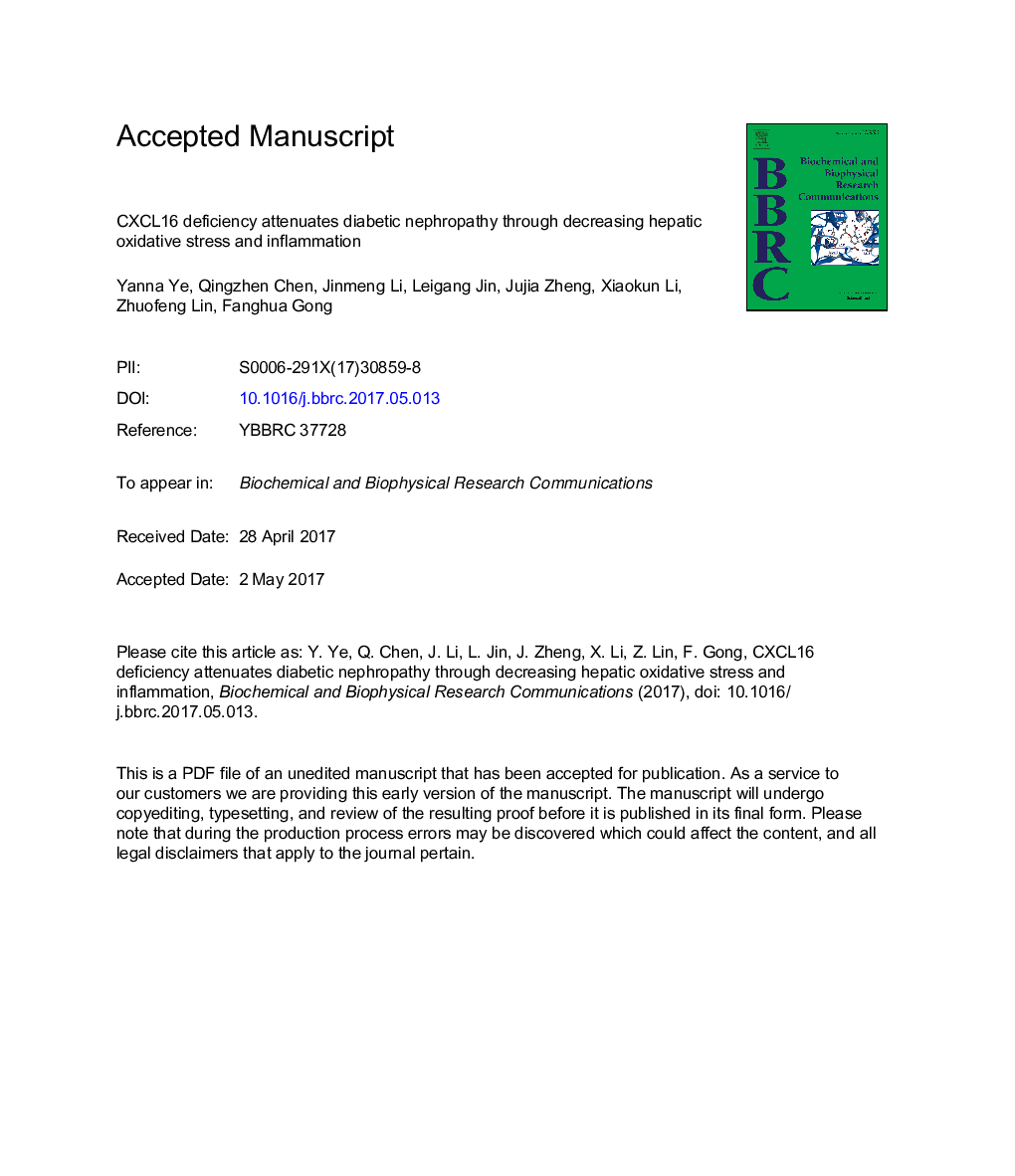| Article ID | Journal | Published Year | Pages | File Type |
|---|---|---|---|---|
| 5504962 | Biochemical and Biophysical Research Communications | 2017 | 25 Pages |
Abstract
Soluble C-X-C chemokine ligand 16 (CXCL16) is related to the inflammatory response in liver injury and involved in the pathogenesis of renal dysfunction in diabetes patients. However, the exact role of elevated CXCL16 in diabetic nephropathy (DN) remains unclear. In this study, we investigated the role of CXCL16 in streptozcin (STZ)-induced diabetic nephropathy (DN) in mice. The results showed that fasting blood glucose (FBG) and 24 h urinary protein, triglyceride, and cholesterol levels increased in diabetic mice, and these changes were partially ameliorated in CXCL16 KO mice. Meanwhile, the results also showed that ROS generation was suppressed and the expression levels of inflammatory factors and infiltration factors were inhibited both in vivo and in vitro using DN models. In addition, the total AKT protein and p-AKT levels were decreased in CXCL16-depleted HK-2 cells that were treated with LPS. These findings suggest that the CXCL16 gene product promotes inflammatory factors and cell infiltration factors, and inhibits the expression of antioxidant factors to accelerate the development of DN, and CXCL16 deficiency attenuates DN may be involved in the AKT signaling pathway.
Related Topics
Life Sciences
Biochemistry, Genetics and Molecular Biology
Biochemistry
Authors
Yanna Ye, Qingzhen Chen, Jinmeng Li, Leigang Jin, Jujia Zheng, Xiaokun Li, Zhuofeng Lin, Fanghua Gong,
